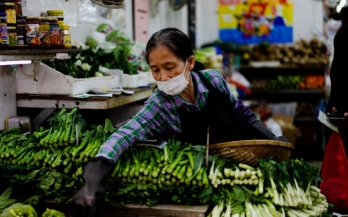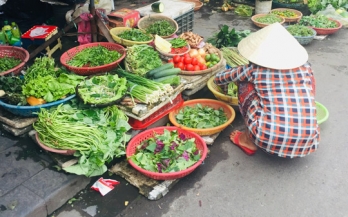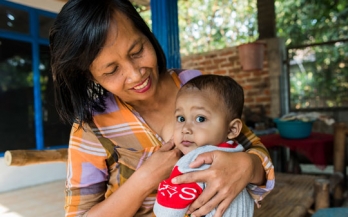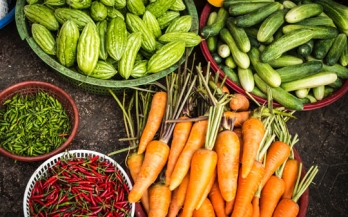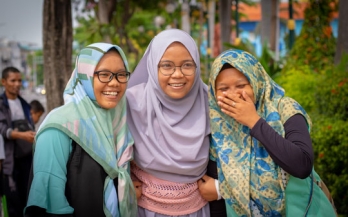- 20/07/2020
In low-income countries, poor dietary diversity is driven in large part by the low availability and affordability of nutritious foods like fresh fruits and vegetables, dairy products and other animal sourced foods. In a recent assessment, GAIN determined that small-and medium-sized enterprises (SMEs), or small and mighty enterprises as GAIN likes to call them, produce, process or sell up to 70% of nutritious food sold in low-income markets in Africa.
- 10/05/2020
These document series summarise some rapid assessments undertaken by the Global Alliance for Improved Nutrition (GAIN) to understand early impacts of the COVID-19 coronavirus pandemic on food systems in a set of low- and middle-income countries where GAIN works (Bangladesh, India, Pakistan, Indonesia, Mozambique, Ethiopia, Kenya, Tanzania, Rwanda, and Nigeria).
- 09/05/2020
These document series summarise some rapid assessments undertaken by the Global Alliance for Improved Nutrition (GAIN) to understand early impacts of the COVID-19 coronavirus pandemic on food systems in a set of low- and middle-income countries where GAIN works (Bangladesh, India, Pakistan, Indonesia, Mozambique, Ethiopia, Kenya, Tanzania, Rwanda, and Nigeria).
- 08/05/2020
These document series summarise some rapid assessments undertaken by the Global Alliance for Improved Nutrition (GAIN) to understand early impacts of the COVID-19 coronavirus pandemic on food systems in a set of low- and middle-income countries where GAIN works (Bangladesh, India, Pakistan, Indonesia, Mozambique, Ethiopia, Kenya, Tanzania, Rwanda, and Nigeria).
- 18/07/2019
This paper describes an innovative behaviour change communication project, implemented as part of the Baduta project, including rationale and early impacts. Baduta was a multi-component project developed by the Global Alliance for Improved Nutrition (GAIN), together with partners, to improve maternal and infant nutrition.
- 01/01/2016
This report aims to give insight into the opportunities for tea supply chain actors to improve nutrition security. It presents the Nutrition Tea Project implemented in Indonesia and shows the lessons learned and successes reached because of this intervention.
- 01/09/2017
The BADUTA Programme's objective was to reduce childhood stunting in the East Java province in Indonesia. This report presents findings from baseline and endline cross-sectional surveys conducted as part of an impact evaluation of the BADUTA Programme.
- 01/07/2017
This report presents the results of a process evaluation that was conducted to measure the process and achievement of pathways to improve the implementation of Baduta program in improving the nutrition of children and pregnant mothers.
- 11/03/2014
Vitamin A deficiency remains a leading cause of morbidity and mortality in Indonesian children and women. As a pre-post evaluation, this study assessed consumption of fortified oil, changes in vitamin A intake and retinol status in 2 surveys of women and children.
- 01/05/2019
Adolescence is a critical period characterized by physical, social and developmental changes that impact on health and eating behavior. Qualitative research was conducted in Java, Indonesia to examine individual, social, environmental and macrosystem factors affecting snacking behaviors in unmarried adolescent girls 16‐19 years of age.

